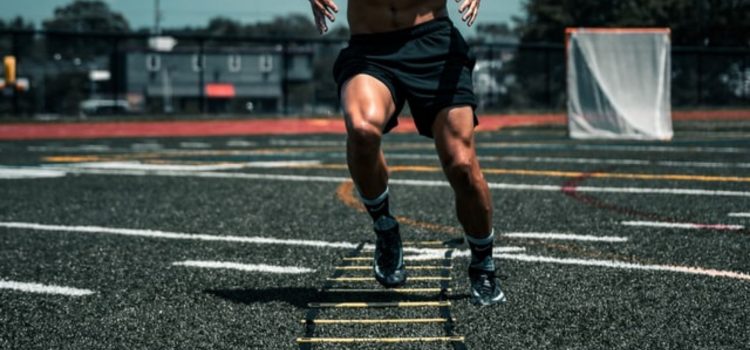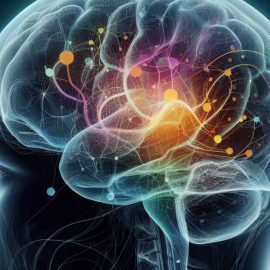

This article is an excerpt from the Shortform book guide to "The Sports Gene" by David Epstein. Shortform has the world's best summaries and analyses of books you should be reading.
Like this article? Sign up for a free trial here .
Can practice override innate ability? What role does practice play in sports performance?
While practice alone cannot determine outcomes in sports (there’s also a strong genetic component), its importance cannot be underestimated. Practice builds sport-specific wisdom, allows you to react quickly, and makes you “unconsciously competent.”
Keep reading to learn about the importance of practice in sports success.
Benefit #1: Practice Builds Sport-Specific Wisdom
By the time athletes reach the elite level, most have spent so much time playing and practicing that they know their sport backward and forward. Because they know the sport so well, elite athletes can make sense of the information they see on the field more quickly than the average player. Studies have shown that experts’ eyes move faster through visual information from their field of expertise than the average persons’.
- Elite chess players, field hockey players, and basketball players can accurately recreate the setup of an entire board or field after looking at a photo for just a few seconds.
- Elite volleyball players can discern whether the ball is present in a snapshot of a game after a 16-millisecond glance (what would just look like a flash of light for most of us).
This is not because every professional chess, volleyball, and baseball player has a photographic memory. In fact, when chess pieces were set up randomly, the elite players’ ability to recreate the board was no better than anyone else’s. It is because rather than trying to memorize individual pieces of information, experts focus on the relationships between those pieces to make their next move. This strategy is called “chunking.” By breaking the information into meaningful chunks, and having enough experience to know how chunks fit together, athletes are able to predict what is coming next and react accordingly.
| “Mirror Neurons” An article from Grantland shows how the brains of experienced athletes process information differently than the brains of novices. It describes a study testing “mirror neuron” activity (neurons that fire when we see someone perform a familiar action) in professional basketball players, basketball coaches and journalists (“experienced watchers”), and people who had never played the game. The three groups watched video clips of people shooting free throws. The video was stopped several times throughout the shot, and the participants made a prediction about whether the ball would go into the hoop. The results showed that: The players made the most accurate predictions overall. The difference in frequency of players’ correct predictions versus correct predictions from the other groups was greatest when the video was stopped before the shooter’s hands released the ball. These results support Epstein’s discussion of practice building mental models. The player’s mental model of what a successful shot should look like allowed them to make more accurate predictions. Even more intriguing: only the professional players showed increased firing of neurons associated with hand muscles (specifically the muscles in their pinkie fingers). This response was greatest when they watched missed shots, suggesting that the players were unconsciously trying to correct the technique they were watching on the screen. |
Benefit #2: Practice Allows You to React Quickly
Epstein explains that the reaction times of elite athletes are about the same as the rest of the population. But at the elite level, most sports are played fast. In a sense, elite athletes can predict the future when it comes to their sport because they can read the field well enough to anticipate what is coming next. The more experience (practice) an athlete has, the more extensive their mental database of sport-specific knowledge, and the more meaning they can quickly make from what they see. As Epstein notes, this sport-specific wisdom cannot be replaced by raw athleticism.
- A tennis player could have a technically perfect forehand shot, but it is of little use if she cannot forecast where the ball will be. Elite tennis players can tell if a serve will be forehand or backhand by just looking at the torso of their opponent, clearly an advantage when serves can travel at 130 mph.
- It doesn’t matter how powerful your baseball swing is if it does not contact the ball. Baseball players need to decide on their swing before the ball is halfway to home plate. In addition to watching the pitcher, they can tell what sort of pitch is coming by watching the movement of the threads on the baseball. Deciding on the swing early is critical when the ball is traveling at over 100 mph.
Epstein illustrates the idea of natural ability needing the wisdom of practice with Jennie Finch’s (Olympic gold medalist in softball) ability to strike out Barry Bonds, Albert Pujols, and other famous MLB players with her softball pitches. Even though her pitches are slower and thrown closer to home plate than baseball pitches, the difference between a baseball pitch and a softball pitch is enough to stump even the best baseball players. Her pitches are not part of baseball players’ mental databases. They cannot forecast how her pitches will travel, and their athleticism does not stop them from striking out.
| What About “Straightforward” Sports? Epstein discusses practice in sports in general terms, but sports have vastly different levels of complexity, physicality, and strategy. Football can be likened to a game of chess much more readily than running can. Not only do football players have to train their bodies, but they need to learn all of the rules and study the strategy of their game. Not to mention, on game day, football players have another team of equally well-trained players trying to stop them from doing the exact thing they are trained to do. On the other hand, the marathon is a much more straightforward event (not to say that there is no strategy involved). Adding a ball to a sport adds a level of complexity and unpredictability. Playing on a team also adds confounding elements of anticipation, awareness, and collaboration not found in endurance sports. Sports like rowing and cycling are complex in their own right, but athletes in these sports are able to focus on their technique without many of the variables present in “ball sports.” Sports like weightlifting are even more straightforward, with each athlete having their own equipment, space, and time to execute their craft. The complexity of a sport adds another layer to the debate around the 10,000-hour rule. Perhaps, in certain sports, the amount of time spent thinking about and studying the sport does have more impact on eventual success than in others. After all, the study which originally sparked the 10,000- hour-rule debate was based on musicians, a largely cerebral discipline. |
Benefit #3: Practice Makes Athletes “Unconsciously Competent”
As Epstein notes, athletes are building and utilizing their sport-specific wisdom largely unconsciously. In fact, at an elite level, thinking too much during play can hinder an athlete’s performance (a phenomenon widely known as paralysis by analysis). With enough practice, sport-specific wisdom becomes so ingrained that elite athletes’ brain activity shifts from the frontal lobe (the area of more conscious thought) back towards the more “automated” sections of the brain when they are playing their sport.
- A study illustrating this principle showed that brain activity was mainly measured in the automated sections when athletes performed the activity they knew best. However, brain activity shifted back to the frontal lobe when the activity was changed even slightly (for example, if a cyclist used an arm bike instead of a traditional bike). This study has two important takeaways for practice:
- Elite athletes practice so much that they may not even have to think about what they are doing.
- Elite athletes’ expertise is very sport-specific. It is not that they can play any sport without thinking, but that they have built an extensive mental database around one activity.
| The Hierarchy of Competence Elite athletes become so competent in their sport that they can perform the skills involved with little conscious thought. This expertise is often called “unconscious competence,” and is part of a learning trajectory model known as The Hierarchy of Competence. Noel Burch developed the model in the 1970s to track progression when learning a new skill. In the model, we start in the “unconscious incompetence” zone in which we do not even realize that we do not know how to perform the skill. We can think of this as the naive or ignorant zone. As we learn, we move into the “conscious incompetence” zone, where we realize that we have a lot to learn. As we start to pick up the skill, we become “consciously competent.” We can perform the skill, but we still have to think about it. A novice playing a sport would likely be in the conscious competence zone. As we master the skill we move into the “unconscious competence” zone, where we can perform the task without even thinking. We have all had the experience of letting our minds wander while we do something else. For example: trying to plan your weekend while out for a run, talking on the phone while cooking dinner, or even (not advisably) letting our minds wander while driving. We can do this because we are unconsciously competent at many tasks in our lives. For elite athletes who have amassed hours of practice, their sport becomes one of these automated tasks. |
An Example Of Innate Ability and Practice on the Tennis Court
Epstein gives a powerful example of the interplay between practice and talent by citing a longitudinal study following German tennis players throughout their careers.
In 1978, the German Tennis Federation tracked over 100 eight-to-12-year-old tennis players. They wanted to predict which kids might become elite players later in their careers. The study looked at tennis-specific skills and general athleticism. Epstein highlights the following results:
- The tennis-specific skills predicted between 60% and 70% of the players’ ultimate ranking.
- But, the model was only able to predict ultimate rankings when measures of general athleticism were included.
The lesson of these results is that both practice (the tennis-specific skills) and innate ability (general athleticism) were integral to the future elite tennis players’ success. As the Matthew Effect predicts, the already gifted natural athletes benefited from the tennis-specific practice and reached the top of their sport.
| The Importance of Practice in Sports Success The results of the tennis study discussed above are supported by several other studies of practice and success in sports. A 2016 study called “The Relationship Between Deliberate Practice and Performance in Sports: A Meta-Analysis” found that 18% of the difference in athletes’ performance could be explained by deliberate practice. While that may seem like a low number at first, 18% is a huge difference in sports. The world record in the mile run is three minutes and 43 seconds. Eighteen percent slower (four minutes 23 seconds) would be blown away by talented high school runners. The same study found that at the highest level, deliberate practice explained just 1% of the difference in performance—a powerful testament to innate ability. |

———End of Preview———
Like what you just read? Read the rest of the world's best book summary and analysis of David Epstein's "The Sports Gene" at Shortform .
Here's what you'll find in our full The Sports Gene summary :
- A look at how our genes play a determining role in our success in sports
- Why practice doesn't always guarantee success
- The fortuitous gene pairings that can lead to elite athleticism






